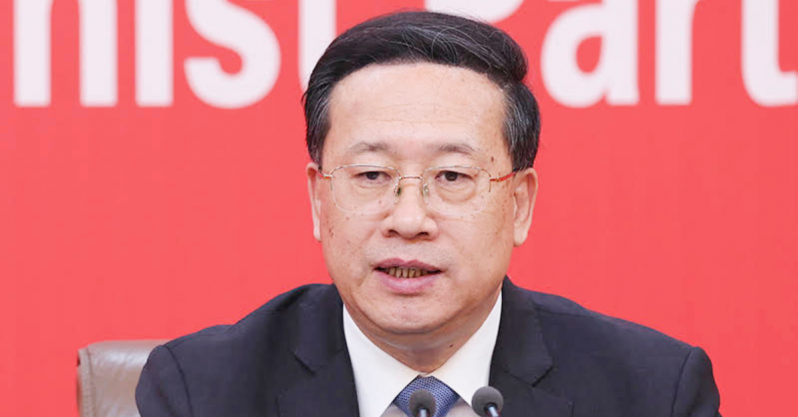— Relations with LAC will continue to grow — Expert
By Samuel Sukhnandan in Beijing
AMID a new period of massive global change and enormous challenges, China’s relations with the world has remained steadfast, making historic leaps over the past decade under the leadership of President Xi Jinping.
This is according to the country’s Vice-Foreign Minister, Ma Zhaoxu, who told a news conference in Beijing on Thursday, on the sidelines of the ruling Communist Party’s twice-a-decade congress, that China’s foreign policy has never been stronger.
“The decade in which Xi Jinping ‘Thought on Diplomacy’ has led China’s diplomacy to forge ahead, is a decade in which China’s relations with the world have made historic contributions to the international community,” he said.
Ma also boasted about China’s work to advance diplomacy with Chinese characteristics, promote the building of a community with a shared future for mankind, and advocate for the practice of true multilateralism.
China’s active role in promoting reform and development of the global governance system and safeguarding and supporting the United Nations-centred international system and the international order were also highlighted.
“We have promoted the construction of a new type of international relations, actively participated in the reform and construction of the global governance system, and significantly enhanced China’s international influence, appeal, and shaping power,” Minister Ma said.
Besides that, the country has also taken concrete actions to support the global pandemic response, address climate change, promote sustainable development and put forward China’s proposals on addressing the global governance deficit and global challenges.
This is reflected in China’s Belt and Road Initiative (BRI) and Global Development Initiative (GDI), among others, which have provided much-needed technical and financial support for developing countries while at the same time bridging the developmental needs gap in many countries.
So far, the joint construction of the BRI has attracted the active participation of 149 countries and 32 international organisations, as well as a large number of landmark projects such as the China-Laos Railway, among others.
Additionally, China has signed 19 free trade agreements with 26 countries and regions to promote the entry into force and implementation of the Regional Comprehensive Economic Partnership Agreement.
As such, the Chinese Vice-Foreign Minister noted that efforts will continue to be made by China to perfect the comprehensive, multi-level, and multi-faceted way of engaging in dialogue, exchanges and cooperation with other countries in the world.
Meanwhile, over the past 10 years, the total number of countries that have established diplomatic relations with China has increased from 172 to 181, and the number of partnerships established with countries and regional organisations in the world has increased from 41 to 113.
During that same period, President Xi visited 69 countries on five continents 42 times, received more than 100 heads of state and government in China, and built a more comprehensive and solid global partnership network for the country.
Looking ahead, Minister Ma told the global press that the diplomatic front will unite more closely around the Communist Party Central Committee and President Xi, as they forge ahead with vigour and courage to constantly create sound Chinese diplomacy and make new contributions to the international community.
LAC RELATIONS
China’s diplomatic relations with Latin American and Caribbean (LAC) countries have grown significantly under President Xi’s term in office.
Cooperation with the region is focused on numerous areas which include trade and investment, agriculture, energy, infrastructure, manufacturing and technological innovation. In fact, 19 governments across Latin America and the Caribbean have joined President Xi’s signature BRI.

Rasheed Griffith, a senior fellow at the Inter-American Dialogue, a Washington, D.C.-based think tank, said that the people-centred principle is the defining feature of China’s diplomacy, which continues to build momentum and popularity within the global community.
“Unlike many other large countries, they (China) treat small countries with the same kind of vigour, policy-wise. And that is why when they do business with the Caribbean or Latin America, it is at that very high level, from the president to president level. “You don’t actually see that much from others,” he added.
The Caribbean-China expert told this publication in an interview that the scale of China’s foreign policy has no doubt expanded under President Xi, but in a more dynamic way over the past decade, especially since the country’s diplomatic thinking reflects that of developing nations of the world.
Griffith said because China wants to have a “bigger place and space” in the world, engagements will grow and continue in the areas of policy and politics for all Caribbean and Latin American countries. He also feels there will be no slowing down on engagements at both the bilateral and multilateral levels.
Meanwhile, over the past five years, several countries within the region have broken ties with Taiwan in favour of solidifying relations with China. In 2017, Panama took that step, and the following year, the Dominican Republic and El Salvador followed suit. In December 2021, Nicaragua became the latest LAC country to end diplomatic relations with Taiwan.
The senior Inter-American Dialogue fellow predicts that Taiwan’s last remaining allies will swap allegiance to China within the next 10 years. He said the momentum toward China is felt not only from Beijing itself but within the region too. As more LAC countries align with China, the bloc could influence Taiwan’s remaining allies to make the swap.
(Reporting courtesy of NCN Editor, Samuel Sukhnandan). Sukhnandan is currently in Beijing on a China International Press Communication Centre (CIPCC) 2022 Fellowship at the invitation of the China Public Diplomacy Association)



.jpg)











